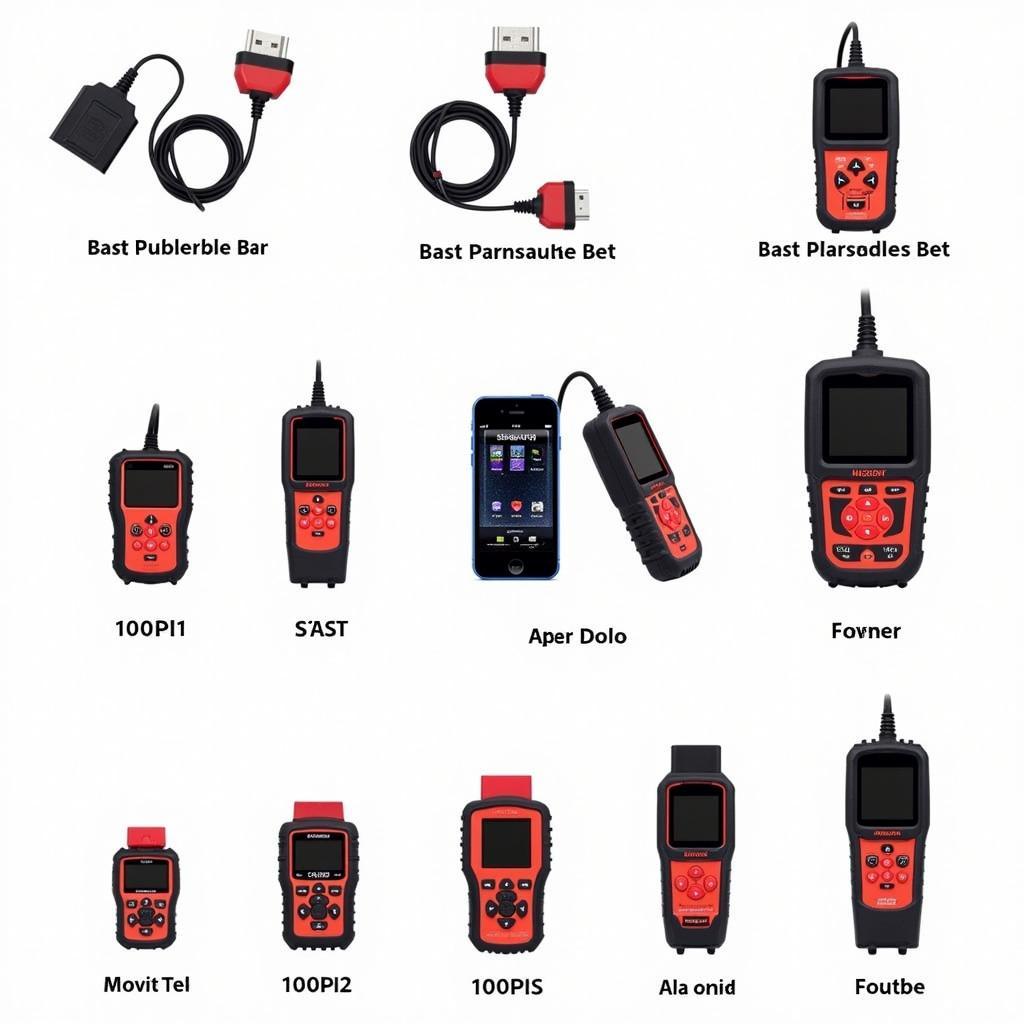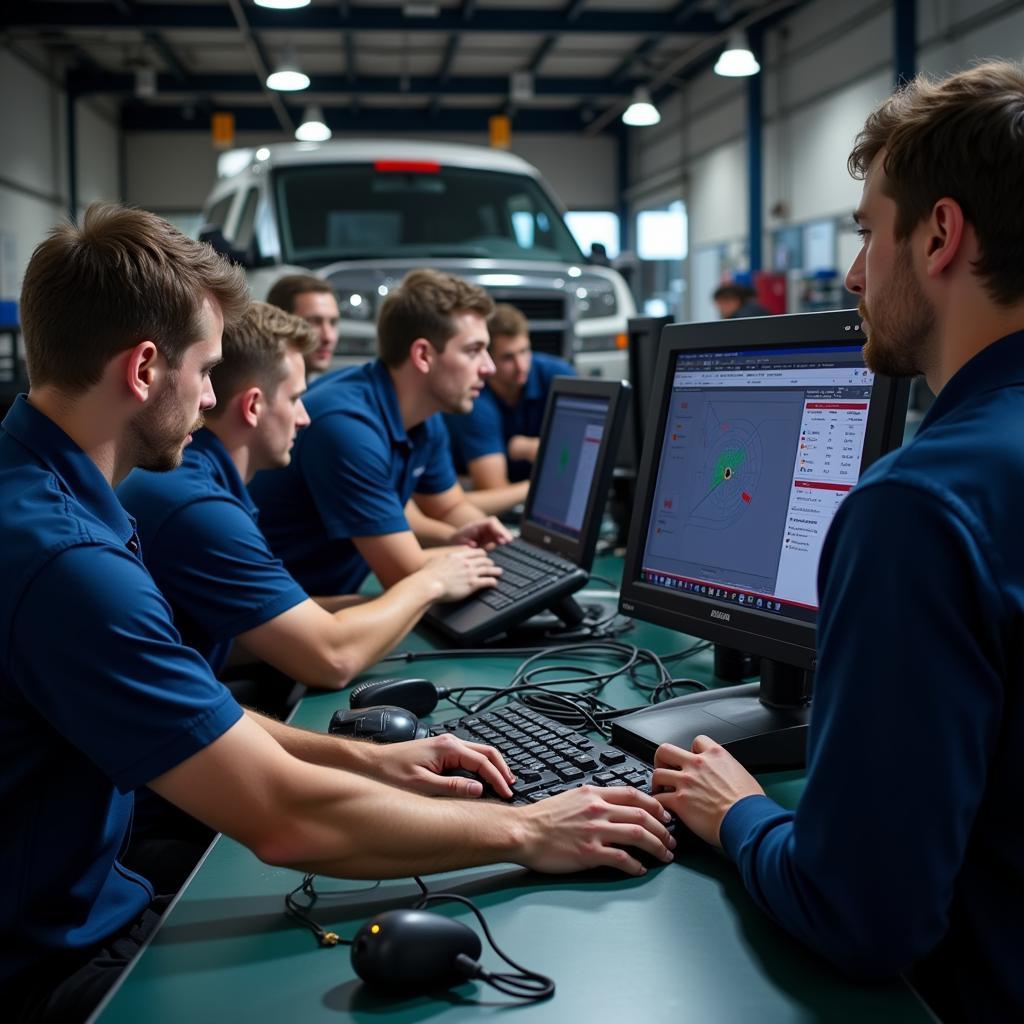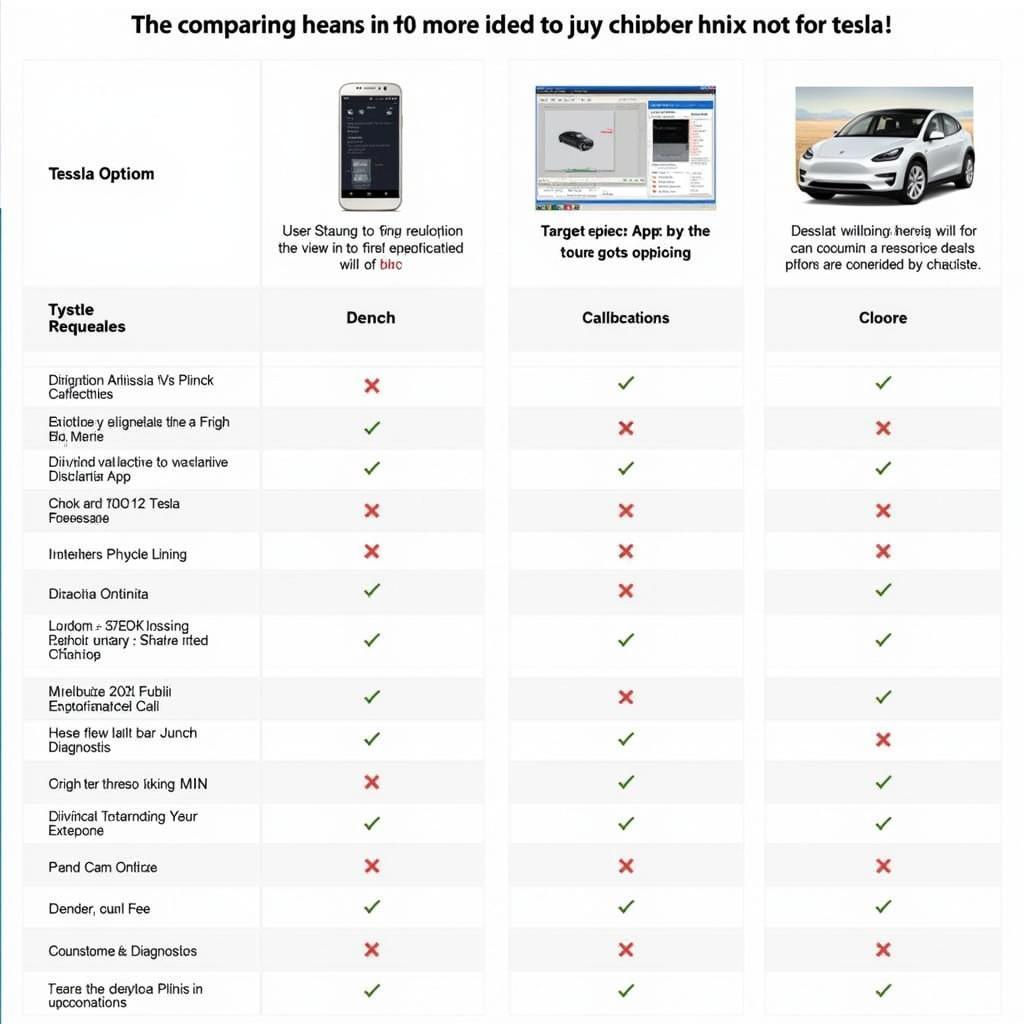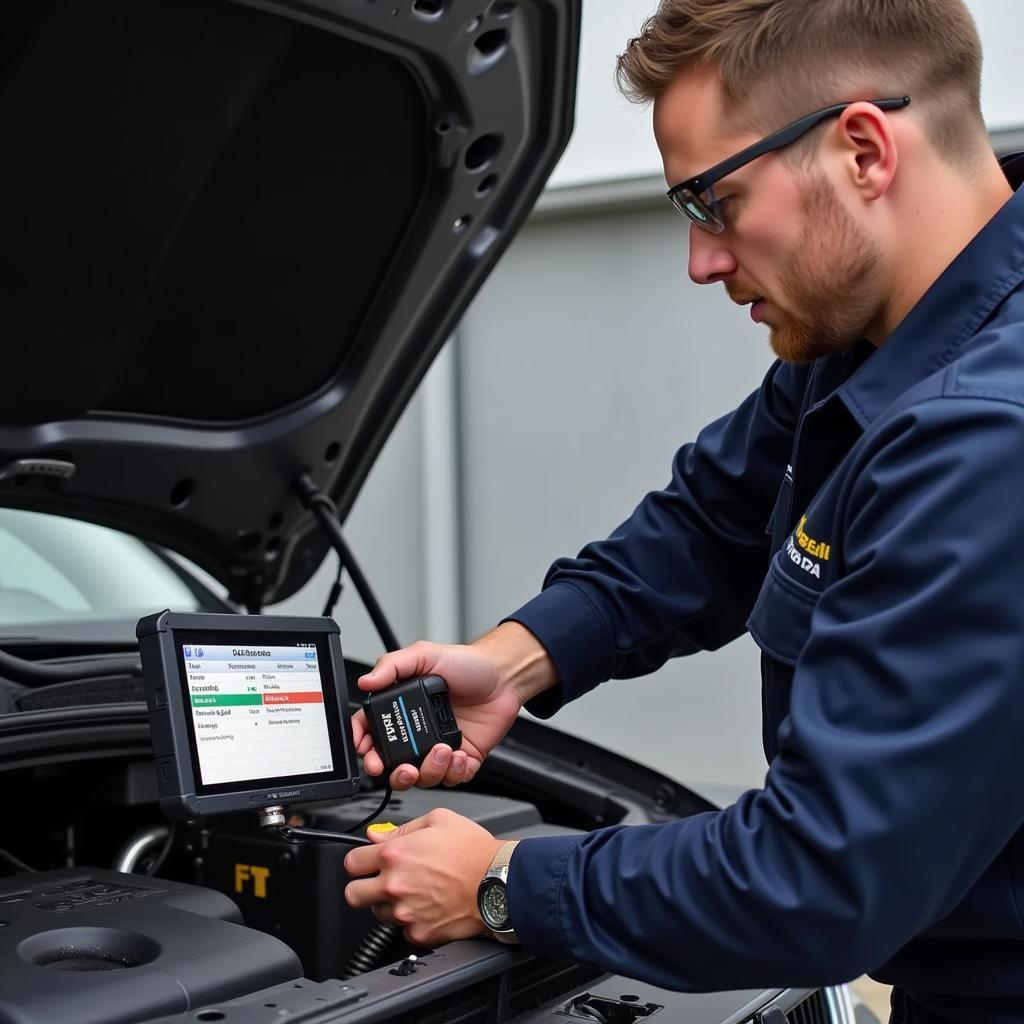Diagnostic tools are essential for modern automotive technicians. Just as a doctor needs a stethoscope, automotive professionals need specialized software and hardware to pinpoint issues within increasingly complex vehicle systems. While the search term “Toshiba Pc Diagnostic Tools Download” might initially seem geared towards computer diagnostics, the underlying need for reliable diagnostic software translates directly to the automotive world. This article will explore the importance of diagnostic tools in the automotive sector, discuss various types of tools, and offer guidance on selecting and utilizing these tools effectively.
Choosing the right diagnostic software and hardware can significantly impact a technician’s efficiency and accuracy. Similar to how a pc diagnostic tool download toshiba can help troubleshoot computer problems, specialized automotive diagnostic tools provide in-depth analysis of a vehicle’s electronic systems. From engine performance to transmission issues and even advanced driver-assistance systems (ADAS), these tools empower technicians to diagnose and repair problems swiftly and confidently.
Understanding the Need for Automotive Diagnostic Tools
Modern vehicles are complex networks of interconnected electronic control units (ECUs). These ECUs manage everything from engine timing and fuel injection to airbag deployment and climate control. When a problem arises, pinpointing the root cause can be incredibly challenging without the right diagnostic tools. These tools allow technicians to access real-time data from the various ECUs, read and clear diagnostic trouble codes (DTCs), and perform various tests to isolate the faulty component or system.
What are the key benefits of using these tools? Simply put, they save time and money. By quickly identifying the problem, technicians can avoid unnecessary part replacements and reduce labor costs. This translates to a more efficient workflow and improved customer satisfaction. This concept resonates with the need for a toshiba hard drive diagnostic tool windows 10 which aims to pinpoint hardware issues quickly.
 Automotive Diagnostic Tools in Use by a Technician
Automotive Diagnostic Tools in Use by a Technician
Types of Automotive Diagnostic Tools
There is a wide range of diagnostic tools available, each designed for specific tasks and levels of expertise. Some common types include:
- Code Readers: These basic tools retrieve DTCs, giving a general indication of the problem area.
- Scan Tools: More advanced than code readers, scan tools provide access to live data streams, allowing technicians to monitor sensor readings and other critical parameters in real-time.
- Oscilloscope: This tool helps visualize electrical signals, which is essential for diagnosing complex electrical issues.
- Pressure Transducers: Used to measure various pressures within the vehicle’s systems, such as fuel pressure, oil pressure, and transmission fluid pressure.
- Specialized Software: Certain diagnostic software focuses on specific vehicle makes or systems, providing in-depth information and specialized functions. For instance, much like seeking a specific toshiba hard drive diagnostic tools, specialized automotive software can target particular vehicle modules for enhanced diagnostics.
Choosing the Right Diagnostic Tool
Selecting the appropriate diagnostic tool depends on several factors, including the technician’s level of expertise, the types of vehicles they typically work on, and their budget. While basic code readers might suffice for simple diagnostics, professional technicians often require more sophisticated scan tools and specialized software. Similarly, just as you might seek the best free hardware diagnostic tools for a quick computer check, choosing a suitable automotive diagnostic tool hinges on the specific needs of the user.
 Different Types of Automotive Scan Tools Displayed
Different Types of Automotive Scan Tools Displayed
How to Use Automotive Diagnostic Tools Effectively
Effectively using diagnostic tools requires more than just plugging them in and reading codes. Technicians need a thorough understanding of the vehicle’s systems, the specific tool’s functionalities, and the diagnostic process. This involves correctly interpreting data, analyzing DTCs, and performing relevant tests to confirm the diagnosis.
- Identify the Symptoms: Begin by thoroughly understanding the vehicle’s symptoms from the customer or through a test drive.
- Retrieve DTCs: Use the diagnostic tool to retrieve any stored DTCs.
- Analyze Live Data: Monitor live data streams to identify any unusual sensor readings or system behaviors.
- Perform Tests: Use the tool to perform specific tests based on the suspected problem area.
- Verify the Repair: After completing the repair, use the diagnostic tool to confirm that the issue has been resolved and no new DTCs are present.
 Technician Analyzing Diagnostic Data on a Laptop
Technician Analyzing Diagnostic Data on a Laptop
“Accurate diagnostics are the cornerstone of efficient repairs,” says John Smith, a seasoned automotive technician with over 20 years of experience. “Investing in the right tools and knowing how to use them effectively is crucial for any professional in this field.”
Staying Up-to-Date with Diagnostic Technology
The automotive industry is constantly evolving, with new technologies and vehicle systems emerging regularly. Therefore, technicians must stay up-to-date with the latest diagnostic tools and software to effectively service modern vehicles. This continuous learning is akin to keeping your computer diagnostic tools updated, similar to searching for a “toshiba pc diagnostic tools download.”
“The key to success in this field is ongoing education,” adds Maria Garcia, an automotive electronics specialist. “Staying current with the latest diagnostic techniques and tools is essential for providing top-notch service.”
 Automotive Training Session on Diagnostic Tools
Automotive Training Session on Diagnostic Tools
Conclusion
“Toshiba pc diagnostic tools download” highlights the critical need for reliable diagnostic resources across different sectors, including the automotive industry. Effective automotive diagnostics are essential for accurate and efficient repairs in today’s complex vehicle landscape. Investing in the right tools and ongoing training ensures technicians can provide high-quality service and keep vehicles running smoothly. For expert advice and assistance with your diagnostic tool needs, connect with ScanToolUS at +1 (641) 206-8880 or visit our office at 1615 S Laramie Ave, Cicero, IL 60804, USA. We are committed to providing the best solutions for your automotive diagnostic needs.
Do you have any questions about choosing the right diagnostic tools? Contact us today, and we’ll be happy to help! We are conveniently located at 1615 S Laramie Ave, Cicero, IL 60804, USA, and you can reach us at +1 (641) 206-8880.
FAQ
- What is the difference between a code reader and a scan tool? Code readers retrieve DTCs, while scan tools provide live data and more advanced functionalities.
- How often should I update my diagnostic software? Keeping your software up-to-date is crucial, with updates typically released several times a year.
- What is the best diagnostic tool for beginners? A basic code reader or an entry-level scan tool is a good starting point for beginners.
- Do I need specialized software for specific vehicle makes? While not always necessary, specialized software can be beneficial for in-depth diagnostics on particular makes.
- How can I learn more about using automotive diagnostic tools? Various training courses and online resources are available to enhance your diagnostic skills.
- Where can I find reliable automotive diagnostic tools? Reputable automotive tool suppliers and online retailers offer a wide selection of diagnostic tools.
- What are the most common uses for a free hdd diagnostic tool? Commonly used for checking the health and identifying potential issues with a computer’s hard drive.


